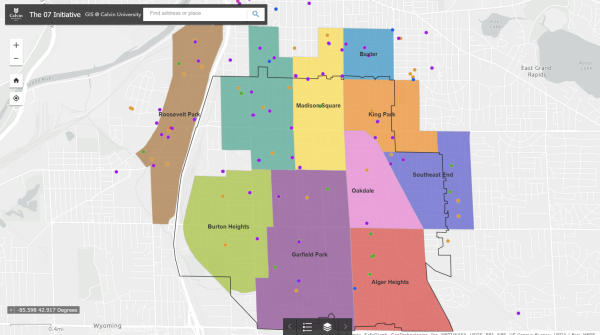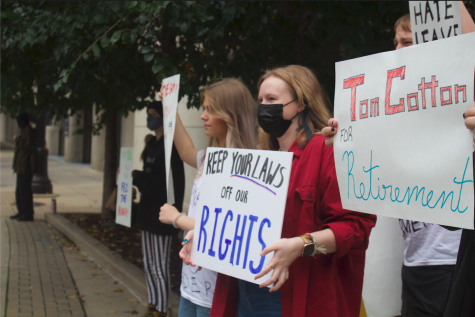Roosevelt Park Ministry responds to DACA
Distrust is increasing in the Roosevelt Park neighborhood of Grand Rapids due to the now-uncertain future of those enrolled in the Deferred Action for Childhood Arrivals (DACA). 73% of the residents in the Roosevelt Park neighborhood are Latino.
Board members of Roosevelt Park Ministries (RPM), Ezequiel Rios and Ruben Ornelas-Luna, spoke about their experiences as residents in the Roosevelt Park neighborhood. They also discussed the ministry’s steps toward providing holistic care for community members who are experiencing stress during this indeterminate state of immigration reform.
On Sept. 5, President Trump made a statement of intent to rescind the DACA program, which has nearly 800,000 people enrolled. Many Grand Rapids residents depend on DACA protections to contribute to family income and attend local universities.
Rios, member of Latino fraternity Phi Lota Alpha, is the husband of a DACA recipient. He explained how a delay in his wife’s official DACA approval caused stress at home.
“You’re going through life. Then, all of a sudden, ‘Am I going to be able to work—employment-wise, income-wise, etc.? What modifications do we have to do to our personal lives if her income is taken away?’”
Ornelas-Luna, a Latino sales representative at Cintas, voiced the increasing frustrations in the community since President Trump announced the DACA phase-out. He explained how DACA recipients feel as if there is a target placed on their backs. Since they have no security, DACA recipients fear their information will not be kept confidential and will not provide proper means to apply for a green card.
“Why are people being punished for doing the right thing when this is what you told us we needed to do?” Ornelas-Luna questioned, “I think the community has come together very nicely to help support this and voice our opinion, but there is tension with the system because, at this point, where does the mistrust stop?”
Bree Brode, Director of Programs at RPM, described RPM’s response to the uncertainty the Grand Rapids’ Latino community feels. She explained that their ministry provides a safe place, known in the neighborhood as a trusted resource for those who need a safe haven to ask questions.
“People might know the library is a resource,” Brode explained, “but if they feel like they’re going to have to go in the library, give their name and address to someone just to get their question answered, they’re not going to go there. So [instead] they can come here, and we’re not gonna ask them for any information they’re not going to give.”
RPM offers several avenues of care, including community programs like English and financial literacy classes, self-management tools from a bilingual counselor and two bilingual family workers who link people directly to services and resources in Grand Rapids. Additionally, the ministry staff stay informed about and connected to local services and events so that DACA recipients will have the best possible care.
“Building that individual relationship while you are here is going to allow you to take this [inclusive] space outside of [Roosevelt Park],” Brode said to students and faculty at Calvin College.
RPM staff are interested in having volunteers contribute their skills to helping the neighborhood. To get involved with RPM, visit the ministry’s website at: rooseveltparkministries.org.







